They had sailed away from Hiva in "April 25:
... On the twenty-fifth day of the first
month (Vaitu Nui), Ira and Makoi set sail;
on the first day of June ('Maro'), the bow of Ira's
canoe appeared on the distant horizon, came closer and closer on
its course, and sailed along, and finally (one) could see the
(new home) land ... (E:17)
April 25 was day 115 in the Sun calendar and 152 - 115 = 37 (=
185 / 5 = 740 / 20).
... Furthermore, the 25th day of Vaitu Nui - when the
Explorers had set sail from Hiva - should correspond to
glyph number 479 (Cb4-16) - (152 - 115) = 442:
| E vae ra - ka oho
- ki te henua - kua huki |
ku kikiu - te
henua |
32 |
|
Huki. 1. Pole attached to the
poop from which the fishing-net is suspended:
huki kupega. 2. Digging stick. 3. To
set vertically, to stand (vt.). 4. Huki á
te mahina, said of the new moon when both its
horns have become visible. Vanaga. 1. To post up, to
publish. 2. To cut the throat (uki). Mq.:
Small sticks which close up the ridge of a house.
Ha.: hui, the small uniting sticks in a
thatched house. Churchill. Standing upright.
Barthel. M. Spit for roasting. Te Huki, a
constellation. Makemson. Hukihuki. 1. Colic.
2. To transpierce, a pricking. 3. To sink to the
bottom. Churchill.
HUI¹,
v. Haw., to unite together, to mix, to add
one to another, to assemble, meet; s.
cluster, collection of things; huihui, a
bunch, cluster; huiuna (for huiana), a
seam in a garment; la-hui, collection of
people, a nation. Sa. sui, to dilute, to add
ingredients to a thing; sui, to sew, to
thread beads; susui, to mend, repair;
susuia, to fasten the ridge-pole of a house.
Tong., hui, mingle, mix, join; fufui,
a flock of birds. N. Zeal., hui, huhui,
to gather, mix, unite; ra-hui, a company;
ka-hui, a herd, a flock. Tah., hui, a
collection of persons, a company; hui-hui manu,
flock of birds; hui-tara-wa, Orion's belt.
Marqu., huhui, a bundle of taro. Sanskr.,
yu, to bind, join, mix; yuj, to join;
yuga, a yoke, a pair, a couple; yûti,
mixing; yûtha, flock of birds or beasts.
Greek, ζευγνυμι,
to join, put to, yoke up, bind, fasten;
ζευγος, a yoke of
beasts, pair, couple; ζυγον,
the yoke; ζωνη,
belt, girdle. Lat., jugum,
a yoke; jugo,
bind up, tie together; jungo,
bind, join, unite. Goth., juk,
a yoke. A.-Sax., geok,
id. Scand., ok,
id. Armen., zugel,
attach together, yoke up; zoygkh,
a couple, a pair. Pers., yûgh,
a yoke. Irish, ughaim,
harness. Welsh, jow,
yoke. Lett., jûgs,
yoke. Anc. Slav., jgo,
yoke. Bohem., gho,
id. Lith., jungas,
id. A singular coincidence of application, if it has
no nearer connection, by the Polynesian and the
Latin of this word to similar purposes, occurs in
the huhui
and hui-tarawa
of the former and
jugulæ of
the latter. In Hawaiian huhui
designates a constellation generally, but especially
that of the Pleiades; in Tahitian
hui-tarawa, lit.
the transverse or horizontal cluster, designates the
stars generally called Orion's belt, and in Latin
jugulæ
represents the very same stars in the constellation
Orion. HUI²,
v. Haw., to ache, be in pain; s.
bodily pain; niho-hui, the toothache; hui,
huihui, cold, chilly, as morning air or cold
water; hukeki, hukiki, cold, shivering
on account of wet. N. Zeal., huka, cold.
Tah., hui, hui-hui, to throb as an
artery, twitchings in the flesh. Sanskr., çuch¹,
to be afflicted, grieve; çuch²,
to be wet, fetid; çuch,
s., sorrow, grief; quære suçîma,
cold? To this Sanskr. çuch
Benfey refers the Goth.
hiufau,
to mourn, lament, and the O. H. Germ. huvo,
an owl. (Fornander) |
 |
 |
|
Cb3-1
(50) |
Cb3-2
(392 + 51 = 443) |
|
CLOSE TO THE FULL
MOON: |
|
5h
(76.1)
ε
Leporis (76.0),
CURSA
= β
Eridani
(76.4),
λ Eridani (76.7)
*35.0 = *76.4 - *41.4 |
μ
Aurigae, μ Leporis (77.6) |
|
June 5
(156 = 115 + 41) |
6 |
|
'May 9 (129 = 115 + 14) |
10 |
|
Vaitu Nui 25 (115 = 230 / 2) |
26 |
|
... In view of
the almost universal prevalence of the Pleiades year
throughout the Polynesian area it is surprising to
find that in the South Island and certain parts of
the North Island of New Zealand and in the
neighboring Chatham Islands, the year began with the
new Moon after the yearly morning rising, not of the
Pleiades, but of the star Rigel in Orion ...
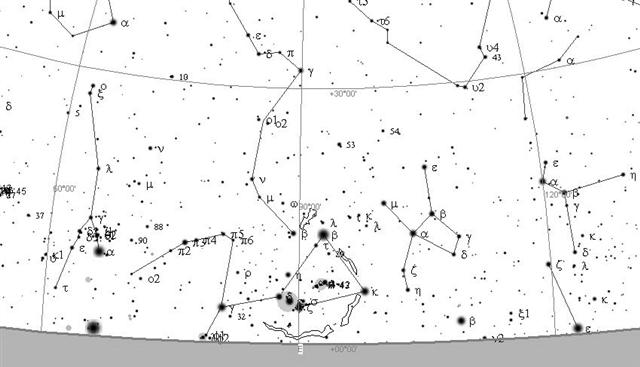 |
| manu pao i te hau
tea - kua tu |
manu rere ki te
hau tea - kua tu |
manu rere ki te
hau tea |
kiore - henua |
|
Pao.
To cut off, to throw a lance. Churchill.
Paopao,
spade, shovel, rubbish, to lacerate, to have a
quarrel with. Churchill.
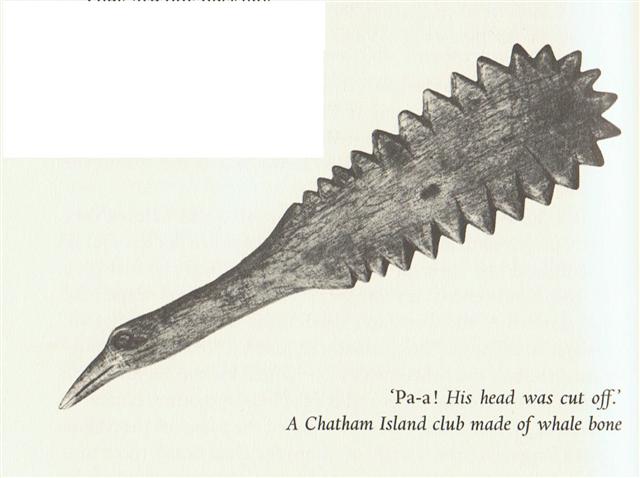
There are 27 teeth around the tail
of the bird above. |
 |
 |
 |
 |
|
Cb4-13 →
14 * 29½ |
Cb4-14
(477 = 392 + 85) |
Cb4-15 |
Cb4-16
(87 = 3 * 29) |
|
CLOSE TO THE FULL
MOON: |
| no
star listed (110) |
ALUDRA (Virgin) = η Canis Majoris
(111.1),
PROPUS = ι Gemini
(111.4),
GOMEISA (Water-eyed) = β Canis Minoris
(111.6)
*70.0 = *111.4 - *41.4 |
ρ Gemini (?) (112.1),
Eskimo Nebula = NGC2392 Gemini
(112.2)
ANTARES (α
Scorpii)
|
Al Dhirā'-5 (Forearm) /
Punarvasu-7 /
Mash-mashu-Mahrū-10 (Western One of the Twins)
CASTOR
= α Gemini
*113.4 = *41.4 + *72.0 |
|
July 9
(10 * 19) |
10
|
11
|
12 (193
= 152 + 41) |
|
'June 12 (190 - 27) |
13 (164) |
14 |
15 |
|
"May 29
(190 - 41) |
30 (150) |
31 |
Te Maro 1 (8 *
19) |
|
... The jaguar learned from the
grasshopper that the toad and the rabbit had stolen
its fire while it was out hunting, and that they had
taken it across the river. While the jaguar was
weeping at this, an anteater came along, and the
jaguar suggested that they should have an excretory
competition. The anteater, however, appropriated the
excrement containing raw meat and made the jaguar
believe that its own excretions consisted entirely
of ants. In order to even things out, the jaguar
invited the anteater to a juggling contest, using
their eyes removed from the sockets: the anteater's
eyes fell back into place, but the jaguar's remained
hanging at the top of a tree, and so it became
blind. At the request of the anteater, the macuco
bird made the jaguar new eyes out of water, and
these allowed it to see in the dark. Since that time
the jaguar only goes out at night. Having lost fire,
it eats meat raw. It never attacks the macuco ...'
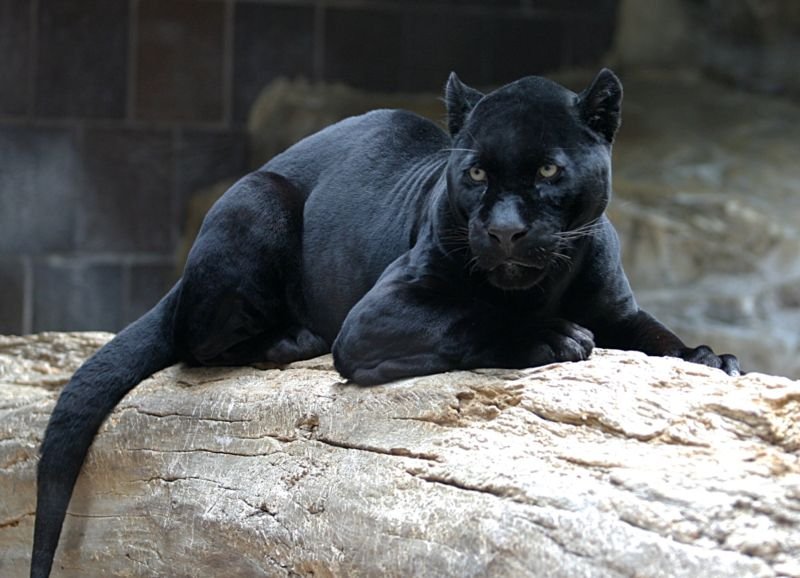 |
Hau Maka and Hua Tava ('at the other end of
the house', te rua tara) were companions (hokorua).
Hoko. 1. To jump; to rock or
swing in rhythm with the chants in festivals, as was the
ancient custom; an ancient
dance. He to'o mai e te hoa manu i te mamari ki toona rima, he ma'u,
he hoko, the 'bird master' receives the egg in his hand
and carries it, dancing. 2. Number prefix: 'in a
group of...': hokotahi,
alone; hokorua, in a group of two (also companion, e
hakarere te kai mo toou hokorua, leave some food for my
companion); hakatoru, in a group of three, etc.;
hokohía, in a group of how many? Hokohía ana oho koe
ki te rano? With how many people will you go to the
volcano? Vanaga. 1. To traffic, to trade, to buy, to ransom
(hoò); hoòa te kaiga, to buy land. 2. To
sport, to play. Churchill. Move the body to and fro with the
rythm of a song. Barthel.
A hare paenga had only 2 corners (tara):
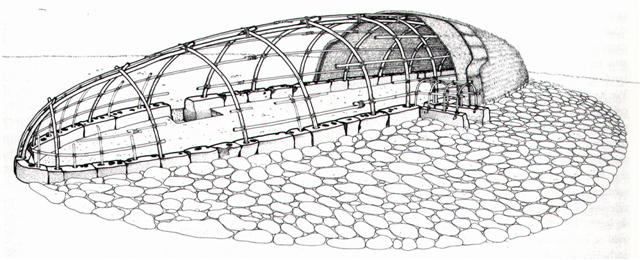
Tara. 1. Thorn:
tara miro. 2. Spur: tara moa. 3. Corner; te
tara o te hare, corner of house; tara o te ahu,
corner of ahu. Vanaga. (1. Dollar; moni tara,
id.) 2. Thorn, spike, horn; taratara, prickly, rough,
full of rocks. P Pau.: taratara, a ray, a beam;
tare, a spine, a thorn. Mgv.: tara, spine, thorn,
horn, crest, fishbone. Mq.: taá, spine, needle,
thorn, sharp point, dart, harpoon; taa, the corner of
a house, angle. Ta.: tara, spine, horn, spur, the
corner of a house, angle. Sa.: tala, the round end of
a house. Ma.: tara, the side wall of a house. 3. To
announce, to proclaim, to promulgate, to call, to slander;
tatara, to make a genealogy. P Pau.: fakatara,
to enjoin. Mq.: taá, to cry, to call. 4. Mgv.:
tara, a species of banana. Mq.: taa, a plant, a
bird. Ma.: tara, a bird. 5. Ta.: tara,
enchantment. Ma.: tara, an incantation. 6. Ta.:
tara, to untie. Sa.: tala, id. Ha.: kala,
id. Churchill.
It was Hau Maka who, by way of his
dream soul, had gone all the way down to Easter Island, far in
the watery south, whereas Hua Tava had
stayed behind in Hiva.
Hua. 1. Testicle. 2. Figuratively: son, hua tahi,
only son; fruits of the earth; to grow well (of fruits). 3.
To cause a fight, a quarrel. Hua-ai, generation, as
lineage of direct descendents;
contemporaries. Huahua, coccyx of bird, 'parson's nose':
huahua moa, huahua uha. Huataru, a
creeper (Chenopodium ambiguum). Vanaga. 1. The
same; ki hua, again, to continue, to strain, to
struggle, to move, to repeat, over and above. Mq.: hua,
the same, to return, to recommence. 2. To bloom, to sprout;
flower, fruit (huaa); huaa tae oko, huaa
vahio, young fruit; hua atahi, only son;
huahaga, fruit; mei te huahaga o tokoe kopu, the
fruit of thy body; tikea huahaga, deceptive
appearance. P Pau.: ua, to be born; huahaga,
lineage. Mgv.: hua, to produce (said of trees, grain,
etc.), blooming time of flowers, abundance of fruit. Mq.:
hua, to produce, to bear fruit. Ta.: ua, to
sprout. Huahua. 1. Tailless fowl. 2. Vein, tendon,
line. 3. Mgv.: huahua, pimples covering the face.
Ta.: huahua, id. Mq.: hua, tubercules. Sa.:
fuafua, abscess on hand or feet. Ma.: huahua,
small pimples. Pau.: Hua-gakau, rupture. Ta.: áau,
entrails. Sa.: ga'au, id. Ma.: ngakau, id.
Churchill. 1. Fruit. 2. Egg. 3. Tā
hua = 'genealogical writing' or 'same writing'. Fischer.
Tava.
Tavatava, pale.
Tavake, sea bird,
white, with rosy tail; its feathers were used to decorate
hats and belts. Vanaga. Mgv.: A shellfish. To.:
tava-amanu, id.
Tavake, a seabird
with a long red tail. Mq.:
toavake, toae,
the tropic bird. Sa.: tava'e,
id. Ta.: Tavare,
to trick, to dupe. Mq.:
tavae, to cajole, to flatter. Ma.:
taware,
to dupe, to fool.. Mq.:
Tavatava, a fish. Sa.:
tavatava, id.
Ha.: kawakawa,
id. Churchill. Tavari,
the plant Polygonum
acuminatum grows on the crater lakes in close
association with rushes and seems to have been used for
medicinal purposes. Barthel 2.
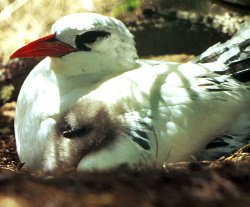
Hua Tava protected by his mother Tavake, we
can imagine.
|










